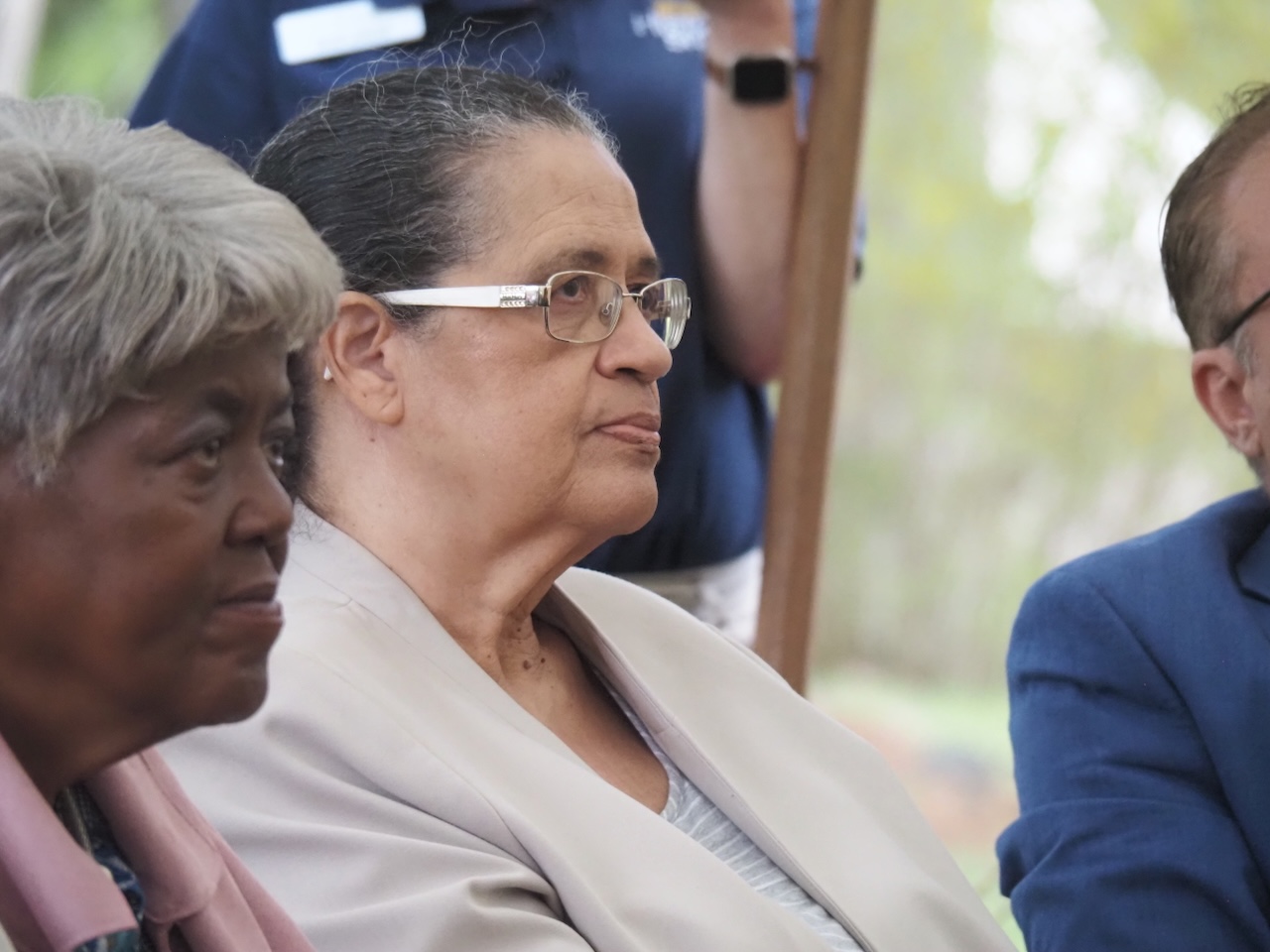An Elizabeth City woman responsible for the designation of six underground railroad sites in the National Parks Service was recognized today during Halifax Day commemorations.
Wanda Hunt McLean was honored during the Halifax Day program and then during a smaller gathering at the Edward Cheek House Museum.
Michelle Lanier, director for the Division of State Historic Sites & Properties, told McLean during the Halifax Day program, she is a person “who has lived out the spirit of freedom for all every single day … My life has been changed for the better in ways that I cannot name because of her work.”
Lanier is writing a letter of support for McLean’s nomination to the Order of Long Leaf Pine, which has also garnered support from Congressman Don Davis and Roanoke Rapids City Councilwoman Sandra Bryant, who serves as president of the Halifax County Underground Railroad.
McLean, Lanier said, is an award-winning historian and has spent many years as a volunteer to preserve African American history in North Carolina. “She has highlighted northeastern North Carolina’s role in the underground railroad and when she relocated to Elizabeth City in 1978 she developed an interest in the Great Dismal Swamp and its relationship to the underground railroad.”
McLean met with the National Parks Service in 2003 to magnify the role of the underground railroad and the Dismal Swamp and national prominence of its story. “Her research, this was volunteer research, led to the documentation of underground railroad routes including six sites by the National Parks Service Network to Freedom program and they include the Pasquotank River, which is the first river in the nation federally designated as a route to freedom, the Great Dismal Swamp, town of Halifax, the Washington Waterfront, the Roanoke River, and the Neuse River.
McLean is also the president of the Northeast North Carolina Underground Railroad Foundation “and continues to champion the study and preservation of our African American heritage,” Lanier said. “Her efforts to preserve Rosenwald schools highlight her commitment to honoring our past across time.”
In Halifax she began assisting the Division of State Historic Sites when it was looking to establish simple wayfinding signs “that we were on the Roanoke River and that was a site to freedom,” Lanier said. “We thought we were asking for a wayfinding sign but through collaborative research with Wanda and others we discovered that we had much more information to share with the public that could fit into a single wayfinding panel so what emerged was a trail within a trai.”
There are five panels that lead to the Roanoke River. “Even further Wanda said, ‘I think you have enough here for a separate designation and we could be a district.’ Up until that moment no other space or place in the entire US south had been designated as a district of freedom-seeking by the Network to Freedom.”
With McLean’s help and research and a collaborative approach, “We were able to successfully attain a designation that right where you sit and right where I stand is a district of freedom-seeking and the first in the US south.”
Lanier told McLean that she is “one who fully embodies the ideals and spirit of not only the underground railroad and Rosenwald schools but the spirit of freedom. Through working together you have shown us what we can accomplish. North Carolina’s history is better documented, more inclusive today due to your tireless efforts.”
At the Cheek house, Steven Green, vice chair of the house and vice chair of America’s 250th, said, “Ms. McLean has successfully written six underground railroad designations and a district. We’re actually working on a fourth for Halifax County.”
After Florine Bell gave a history of the house, which was home to two African American postmasters, Bryant told McLean, “I have no words other than to say thank you for all the hard work and labor that you put into all this research to help get Halifax County designated as part of the Network to Freedom.”
Bryant said, “From my understanding your information was responsible for two of our designations in the county and we right now have three. As president of our local underground railroad I just want to say thank you again and know that we plan to continue to share the story of those that used this network seeking freedom and hopefully gaining freedom and that this history will not be forgotten but that it will continue to be shared.”
Kim Mack, district director for Davis, said four of the six designations are in the First Congressional District.
A Certificate of Special Congressional Recognition was bestowed to McLean in gratitude, Mack said, “for her research and documentation of the underground railroad route which led to the inclusion of six sites in the National Parks Service Network to Freedom.”
Said McLean: “I’m just happy to be here. I would like to thank the group from Halifax for letting me come and for showing so much enthusiasm about the underground railroad which is not in all towns and communities. It’s really an honor to find people who are interested in American History. It’s not separate. It’s all part of American History.”









